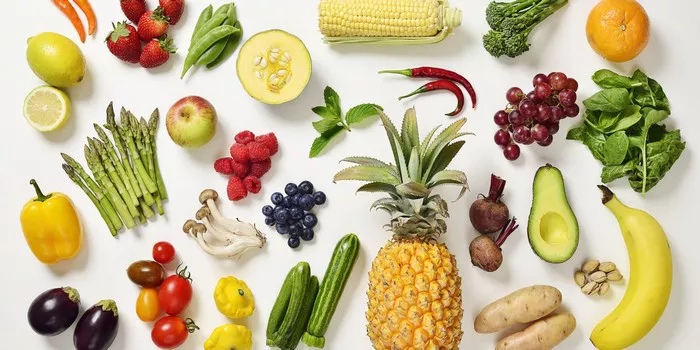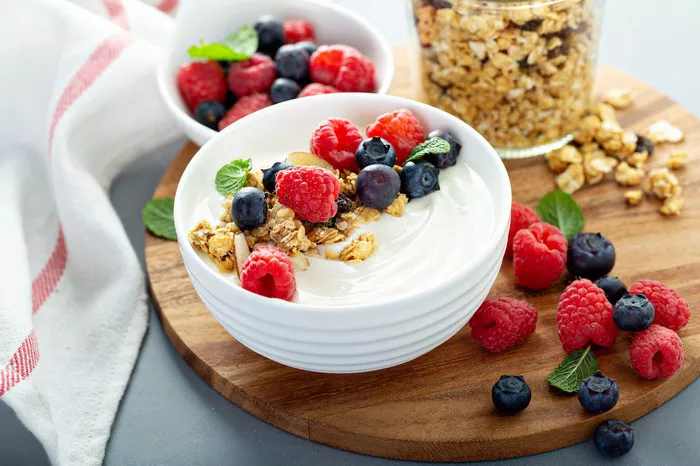High blood pressure, or hypertension, is a prevalent health condition that can increase the risk of heart disease, stroke, and other complications. Alongside lifestyle modifications and medical treatments, incorporating certain fruits into your diet can play a beneficial role in managing blood pressure levels. In this article, we will explore some fruits that have been associated with blood pressure-lowering properties and discuss how they can contribute to your overall cardiovascular health.
Understanding Hypertension
Hypertension occurs when the force of blood against the artery walls is consistently too high. Uncontrolled high blood pressure can strain the heart and blood vessels, leading to serious health issues. Lifestyle modifications, including a balanced diet, regular exercise, and stress management, are crucial components in managing and preventing hypertension.
The Role of Fruits in Blood Pressure Management
Fruits are a valuable addition to a heart-healthy diet due to their abundance of essential vitamins, minerals, dietary fiber, and antioxidants. Several fruits have been studied for their potential to lower blood pressure, mainly due to their content of specific nutrients that promote cardiovascular health.
Fruits Beneficial for Blood Pressure
While individual responses may vary, the following fruits have shown promise in managing blood pressure levels:
Bananas
Bananas are a rich source of potassium, a mineral known to help regulate blood pressure. Potassium balances the effects of sodium, which is linked to increased blood pressure. Including bananas in your diet can contribute to a healthy potassium-sodium balance.
Berries
Berries, including strawberries, blueberries, raspberries, and blackberries, are packed with antioxidants, fiber, and flavonoids. These compounds have been associated with a lower risk of hypertension and improved cardiovascular health. Enjoy a variety of berries as a snack, in smoothies, or as toppings for yogurt or oatmeal.
Citrus Fruits
Citrus fruits such as oranges, grapefruits, and lemons are excellent sources of vitamin C and other antioxidants. Vitamin C has been linked to lower blood pressure levels. Squeeze some fresh citrus juice or enjoy citrus segments as a refreshing and nutritious snack.
Pomegranates
Pomegranates are rich in antioxidants, including polyphenols and anthocyanins, which have been associated with reduced blood pressure. Drinking pomegranate juice or incorporating the arils (seeds) into salads or yogurt can be a delicious way to reap the benefits.
Watermelon
Watermelon is not only a hydrating fruit but also a good source of an amino acid called citrulline. Citrulline is converted to nitric oxide in the body, which helps relax and dilate blood vessels, potentially leading to lowered blood pressure.
Kiwi
Kiwi is a fruit packed with nutrients, including vitamin C, vitamin E, potassium, and fiber. Studies have suggested that consuming kiwi may help lower blood pressure levels, potentially due to its antioxidant content and ability to improve blood vessel function.
Apples
Apples are rich in dietary fiber and flavonoids, which are compounds that have been associated with cardiovascular benefits. Eating apples, particularly with their skin, can contribute to a heart-healthy diet and potentially aid in blood pressure management.
Avocados
Avocados are a unique fruit known for their healthy fats, including monounsaturated fats. These fats, along with potassium, fiber, and antioxidants, contribute to heart health. Including avocados in moderation as part of a well-balanced diet may have a positive impact on blood pressure levels.
Grapes
Grapes, especially dark-colored varieties like red and purple grapes, contain natural compounds called polyphenols, which have been linked to reduced blood pressure. Enjoy grapes as a snack or incorporate them into salads and smoothies for added nutritional value.
Melons
Various melons, such as cantaloupe and honeydew, are not only hydrating but also rich in vitamins, minerals, and antioxidants. Their high water content and potassium content contribute to maintaining a healthy blood pressure range.
Incorporating Fruits into a Heart-Healthy Diet
While these fruits show potential in supporting blood pressure management, it’s important to remember that a well-rounded diet that includes a variety of fruits, vegetables, whole grains, lean proteins, and healthy fats is essential for overall cardiovascular health.
To incorporate these fruits effectively:
Aim for a diverse selection: Incorporate a variety of fruits into your diet to benefit from different nutrients and antioxidants.
Fresh or frozen: Fresh fruits are ideal, but if they are not readily available, opt for frozen fruits without added sugars or syrups. They retain their nutritional value and can be a convenient option.
Whole fruits over juices: While fruit juices can be consumed in moderation, whole fruits are a better choice due to their higher fiber content, which helps regulate blood sugar levels and supports heart health.
Balanced portion sizes: Enjoy fruits in appropriate portion sizes as part of a balanced diet. Consult with a healthcare professional or registered dietitian for personalized guidance.
Comprehensive Approach to Blood Pressure Management
It’s important to note that managing blood pressure requires a comprehensive approach that includes regular physical activity, stress reduction, maintaining a healthy weight, limiting sodium intake, and avoiding excessive alcohol consumption. Fruits, along with other lifestyle modifications, can be an important component of an overall plan for blood pressure management.
Conclusion
While no single fruit is a magic bullet for lowering blood pressure, incorporating certain fruits into your diet can support overall cardiovascular health and contribute to blood pressure management. Bananas, berries, citrus fruits, pomegranates, watermelon, kiwi, apples, avocados, grapes, and melons are all fruits that have shown promise in supporting healthy blood pressure levels.
Remember to enjoy a diverse range of fruits alongside a balanced diet, regular exercise, and other healthy lifestyle choices. Consulting with a healthcare professional or registered dietitian can provide personalized guidance for managing hypertension and maintaining optimal cardiovascular health. By making positive dietary changes, you can take steps towards a healthier lifestyle and better blood pressure control.
























